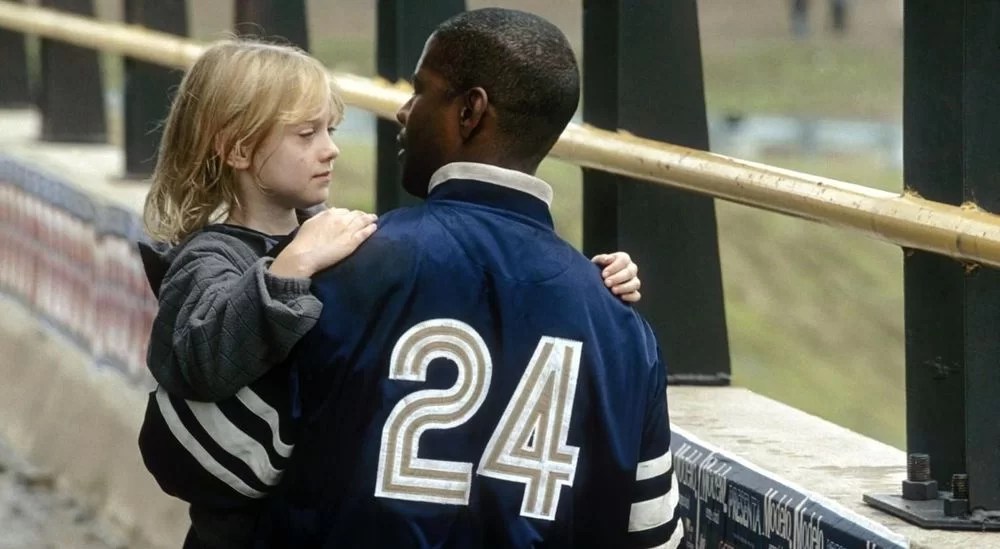Man on Fire is not just a gripping thriller; it is a film steeped in real-life events that highlight the complexities of love, vengeance, and redemption. This cinematic masterpiece, directed by Tony Scott and featuring Denzel Washington in a powerful performance, draws inspiration from the true story of a man who risks everything to protect a child he has come to love. As we delve deeper into the narrative, we will explore the historical context, the events that inspired the film, and the real-life individuals who shaped this poignant tale.
In this article, we will dissect the elements that make Man on Fire a remarkable film, while also uncovering the true story it portrays. From the harrowing reality of kidnapping in Mexico to the personal battles faced by the protagonist, we will provide a comprehensive look at the film's foundation in truth. So, buckle up as we embark on a journey through the dark alleys of desperation and the fierce love of a guardian.
Throughout the following sections, we will not only highlight the film's plot but also the real-life implications and the societal issues it reflects. By the end of this article, you will have a more profound understanding of Man on Fire, its characters, and its impact on audiences worldwide.
Table of Contents
- Biography of the Real Man on Fire
- Plot Summary of Man on Fire
- The Historical Context of Kidnapping
- Character Analysis in Man on Fire
- Cinematic Techniques Used
- Impact of Man on Fire on Popular Culture
- Critical Response to the Film
- Conclusion
Biography of the Real Man on Fire
The real-life inspiration for Man on Fire is based on the events surrounding a former CIA operative named Creasy, who took on the role of a bodyguard for a young girl in Mexico City. While the film takes creative liberties, the essence of Creasy's mission and the emotional bonds he formed are drawn from true events. Here is a brief overview of his biography:
| Name | John Creasy |
|---|---|
| Birth Year | 1950 |
| Occupation | Ex-CIA Operative |
| Location | Mexico City |
| Notable Event | Kidnapping case involving a wealthy family |
Plot Summary of Man on Fire
Man on Fire tells the story of John Creasy, portrayed by Denzel Washington, who is hired to protect a young girl named Pita, played by Dakota Fanning. As Creasy becomes emotionally attached to Pita, the film takes a darker turn when she is kidnapped. This event ignites a fierce quest for vengeance, leading Creasy to unleash his skills in a relentless pursuit of the kidnappers.
Key Themes Explored in the Film
- Loyalty and Sacrifice
- The Impact of Violence
- Redemption and Forgiveness
- The Power of Love
The Historical Context of Kidnapping
The backdrop of Man on Fire is rooted in the alarming rates of kidnapping in Mexico, particularly during the early 2000s. The film addresses the socio-economic issues that lead to such criminal activities and the fear that pervades the lives of affluent families. During this time, kidnapping was often motivated by ransom, and it created a culture of distrust and anxiety.
Statistics on Kidnapping in Mexico
- In 2001, over 1,000 kidnappings were reported in Mexico.
- The rate of kidnappings rose by 300% in the years leading up to the film's release.
- Families of victims often found themselves at the mercy of criminals with little support from law enforcement.
Character Analysis in Man on Fire
Each character in Man on Fire plays a vital role in the development of the story, bringing depth and complexity to the narrative. Here, we will explore the primary characters and their significance.
John Creasy
As the protagonist, John Creasy embodies the struggle between his violent past and his desire for redemption. His transformation from a hardened assassin to a loving protector illustrates the power of emotional connections and the lengths one will go to for love.
Pita Ramos
Pita, the young girl Creasy protects, represents innocence and vulnerability. Her character serves as the catalyst for Creasy's transformation and highlights the impact of trauma on children.
Cinematic Techniques Used
Director Tony Scott employed various cinematic techniques to enhance the emotional impact of Man on Fire. From rapid cuts to a vibrant color palette, the film immerses viewers in the chaotic world of Mexico City and the internal struggles of Creasy.
Visual and Auditory Elements
- Use of chiaroscuro lighting to emphasize moral ambiguity.
- Soundtrack featuring powerful music that amplifies emotional moments.
- Camera angles that create a sense of urgency during action sequences.
Impact of Man on Fire on Popular Culture
Since its release, Man on Fire has left an indelible mark on popular culture, influencing other films and media while also sparking conversations about the issues it portrays. The film's portrayal of loyalty, revenge, and the human condition has resonated with audiences worldwide.
Critical Response to the Film
Critics responded positively to Man on Fire, praising Denzel Washington's performance and Tony Scott's direction. The film's blend of action and emotional depth earned it a place in cinematic history, with many considering it a modern classic.
Conclusion
In conclusion, Man on Fire is more than just a film; it is a reflection of real-life issues surrounding kidnapping and the lengths one will go to protect loved ones. By exploring the true story behind the film, we gain a deeper understanding of the characters and themes that resonate with audiences. We encourage you to share your thoughts in the comments, and if you enjoyed this article, feel free to share it with others or explore more articles on our site.
Thank you for taking the time to read this article. We hope to see you again soon as we continue to explore the fascinating world of film and storytelling.




